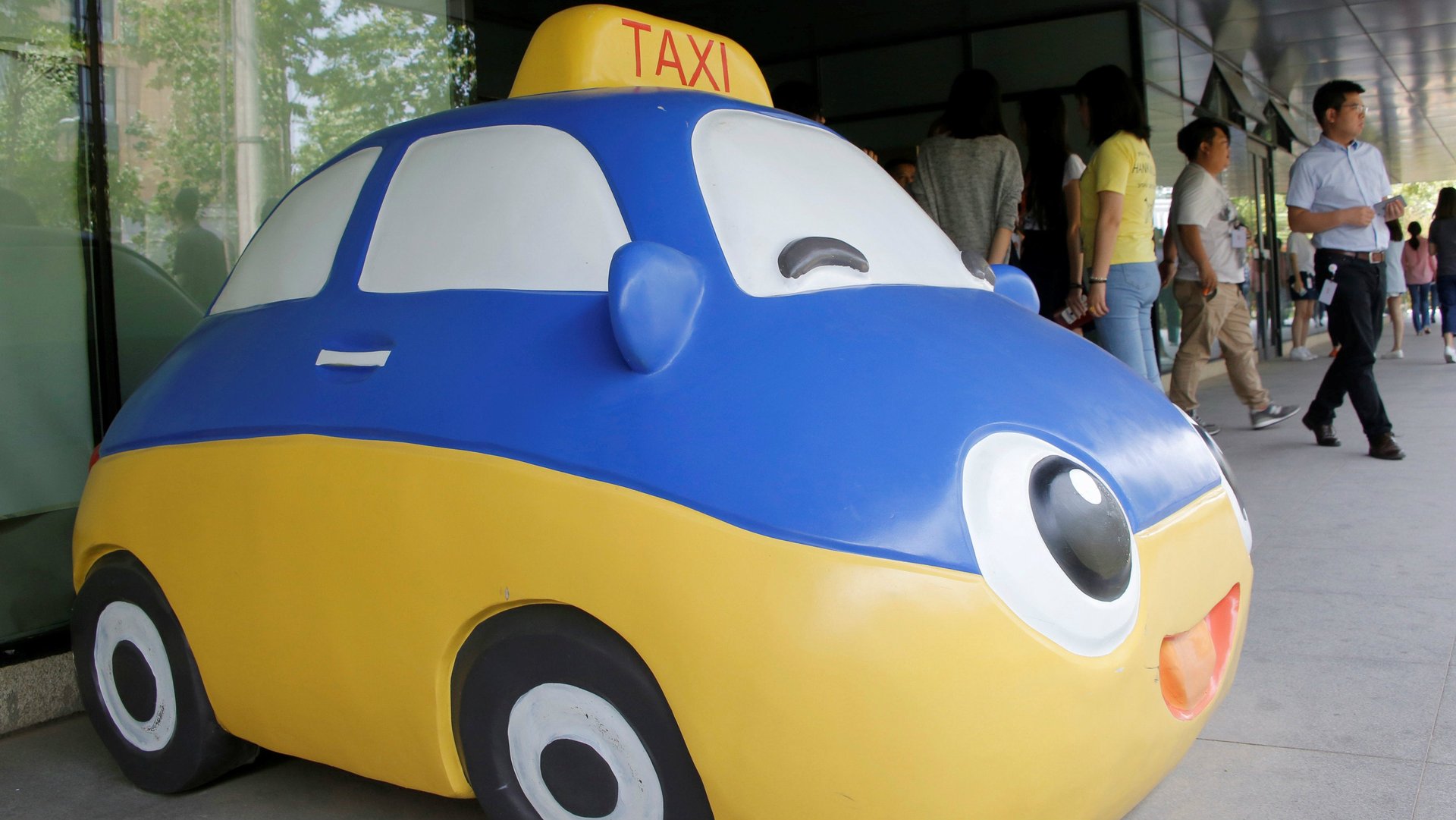China’s Uber rival now owns a stake in every major ride-hailing company on Earth
Uber’s slogan was once “Uber Everywhere.” Now “Didi Everywhere” is just as fitting for its onetime rival.


Uber’s slogan was once “Uber Everywhere.” Now “Didi Everywhere” is just as fitting for its onetime rival.
Didi Chuxing, Uber’s major competitor in China, just absorbed Uber’s China division in a deal that creates a single, dominant ride-hailing company valued at $35 billion. In exchange, Didi will invest $1 billion in Uber.
That investment is arguably just as important as the merger, for it means Didi now has a stake in every major ride-hailing company on the planet.
Uber is available in more than 450 cities worldwide. But it’s by no means dominant everywhere.
In Southeast Asia, Uber’s major competitor is Grab. Founded by the son of Tan Heng Choo, one of Malaysia’s richest men, Grab originated as an app that hailed municipal taxis before expanding into ordinary cars and motorbikes. In August 2015 it raised a $350 funding round that Didi participated in, along with CIC, China’s sovereign wealth fund (which also invested in Didi).
In India, Uber’s major competitor is Ola. Like Didi, it originated as an app that lets consumers hail municipal taxis before opening up to ordinary drivers with cars (as well as rickshaws and other vehicles). Didi invested in Ola in September 2015.
Didi even has its hands in the US, indirectly. The company invested $100 million in Lyft in September 2015, and later merged its apps together so that Chinese consumers traveling stateside could open Didi and hail a Lyft car.
These investments led industry observers to believe Didi was leading an “anti-Uber alliance.” Prior to Didi’s absorption of Uber China, the three companies in this group would have been worth a collective $39 billion.
Didi’s $1 billion investment in Uber likely gives it only a minuscule stake in the ride-hailing giant. But it nevertheless means it has its hands in every single one of its potential major competitors.
This changes perceptions of the future of the ride-hailing industry. It was once feasible to suspect that Uber would bleed cash to compete with Ola, Grab, and Lyft. Perhaps Didi would fund its rivals’ expansion, or even merge with the three of them.
But the cross-pollination of funding suggests the companies might end up frenemies, rather than enemies. Didi now has a stake in everyone’s success, now that the anti-Uber alliance includes Uber.